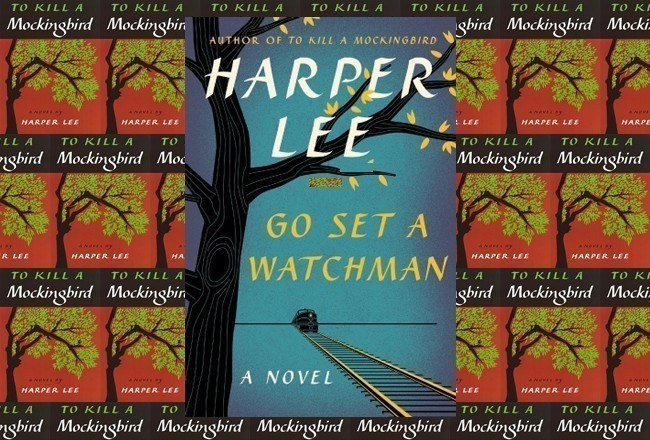
Welcome to part nine of FlaglerLive’s live-blogging of “Go Set a Watchman.” We’ve invited 10 people of varied backgrounds from around the community to read the book and write their response to each of its 19 chapters, from whatever perspective they choose, at whatever length they choose, in 19 installments over the next few weeks. For a few more details on the project, read the introduction here. As always, we start with a summary of the chapter at hand and dive into the critics’ responses. So you’re forewarned: the spoiler alert is implied.
![]()
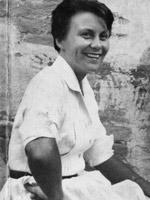
Our Ten Critics: Quick Links
- Today’s Chapter Summary
- Mary Ann Clark
- Jon Hardison
- Monica Campana
- Mark Carpanini
- Inna Hardison
- Daniel Masbad
- Bill McGuire
- Brian McMillan
- Pierre Tristam
![]()
Chapter 9 summary: This is Jean Louise’s backstory, a summary of how and when her m other died, of a heart attack on the porch of the family house, bringing to the family “the heart that killed her son twenty-two years later on the sidewalk in front of his father’s office.” As for Jean Louise, who was 16 when Jem died, it had never occurred to her that she was a girl, and took her sex as “a cruel practical joke” that hadn’t prepared her for the world of femininity she was getting into. She goes to a women’s college in Georgia, then is pushed out of the nest by Atticus, who thinks she should “start shifting for herself in New York or somewhere.” But all along, her compass was always Atticus. Her every decision was framed in the question: “What would Atticus do?”
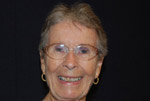 Mary Ann Clark, founder of Flagler Reads Together and president of the Flagler County Historical Society: So far, this is the chapter I’ve cared most for.
Mary Ann Clark, founder of Flagler Reads Together and president of the Flagler County Historical Society: So far, this is the chapter I’ve cared most for.
Atticus was a wonderfully caring single father who was able to give his two children the love and encouragement they needed for a generally happy childhood and a good start into adulthood. Although Scout surely missed having a mother who could help her learn to become a woman, I’d guess Calpurnia tried her best despite seemingly no help from Aunty. Obviously, there was no sex education in the Maycomb schools!
In the story the two Finch brothers had a wonderful relationship helping each other financially and emotionally. In some families this support would not be forthcoming.
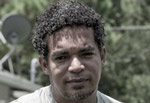 Jon Hardison, co-owner of Ha Media in Palm Coast and member of the FlaglerLive board of directors: Chapter 9 was a short, thin chap. Its hair haphazardly telling the story of a blustery day and the loss of the bowler that caused him to turn up so late. You could tell everything you’d need to know about Chapter 9 from a quick glance. The furled brow was an admission of guilt, the darting eyes a lack of confidence or purpose and the unpressed attire left one the impression Chapter 9 might not have shown up at all if not for the jogging of memory some 20 minutes too late.
Jon Hardison, co-owner of Ha Media in Palm Coast and member of the FlaglerLive board of directors: Chapter 9 was a short, thin chap. Its hair haphazardly telling the story of a blustery day and the loss of the bowler that caused him to turn up so late. You could tell everything you’d need to know about Chapter 9 from a quick glance. The furled brow was an admission of guilt, the darting eyes a lack of confidence or purpose and the unpressed attire left one the impression Chapter 9 might not have shown up at all if not for the jogging of memory some 20 minutes too late.
If Chapter 9 were a character in this book, he’d be a weasel. Harper has just dropped what we’re supposed accept as a huge surprise on us in chapter eight, but seems to know that (without the benefit of reading Mockingbird) we may not know enough about the nature of Jean Louis’s relationship with her father to care. So she sends in Chapter 9, tattered and tardy. Like Seinfeld’s George Costanza, who loves to tell people he’s an Architect or Marine Biologist, Chapter 9 stumbles though the door claiming to be an Accountant who has come to tabulate and report on the sum of Scout’s feelings about her father – probably in an attempt to make her sense of loss even more damaging. Like saying to someone, “I’m going to push you out the window!” Then realizing you’re only on the second floor, so you take them to the 16th floor, walk them to the window and say, “I’m going to push you out the window!” Chapter 9 is the elevator ride in that scenario.
 Monica Campana, just-retired head librarian at Indian Trails Middle School and free-speech advocate: Several things are confirmed in this chapter:
Monica Campana, just-retired head librarian at Indian Trails Middle School and free-speech advocate: Several things are confirmed in this chapter:
1. Scout is uncomfortable in her grown-up skin.
2. Reading to children is good for them.
3. Atticus took the kids everywhere.
Why was Jean Louise so shocked by Atticus’s beliefs? She was with him almost every waking moment. Most of us realize at a pretty early age our parents and adults aren’t God. All it takes is the assassination of a president, the blowing up of a space ship or the catastrophic effect of a hurricane to make kids realize it. Sometimes the world is broken and it can’t be fixed and all the adults around you do is cry. But what you hope kids grow up to realize is that maybe they can fix or change a small part of it. Hopefully Jean Louise will.
I simply love that Atticus read to his children whatever he happened to be reading. He respected his children and literature enough to know how important words are – particularly well researched and well written words. How then do we reconcile his ignorant and misinformed racism? Perhaps later in the novel it will be made clear but for now suffice it to say, I don’t get it.
Jean Louise’s story about beginning her flow at age 11 does not shock me – that was early in those days and without a mother she could very believably have thought she was dying. How difficult it must have been for poor Calpurnia to mother a child in a society that did not respect her enough as a human being to allow her the use of the same toilets.
Lee also explains the hero worship Jean Louise felt for her dad. The idea that Scout grew up to be “complacent in her snug world,” never questioning or rebelling against the code of the South or the rules of her day, challenges everything we know from Mockingbird and more importantly everything we know about child development. Teenagers who never become rebellious or contentious miss an important stage of development as critical as the fast and furious no’s of a two year old asserting self. This is a critical flaw in Jean Louise and probably in Harper as well.
 Circuit Judge Mark Carpanini took office in the Tenth Judicial Circuit in Florida in 2005 in Polk County, where he still serves: Chapter 9 relates how Atticus, after his wife’s death, raised his children. He did not pawn them off on a housekeeper, which would have been easy enough to do. Instead they were constantly by his side. He was a devoted father. Jean Louise and Jem were both well served in that Atticus read to them whatever was at hand. More importantly, it tells us explicitly what we already know. Atticus is the most important person in Jean Louise’s life and she loves him dearly. It makes her discovery of his complicity with the Citizens Council particularly disturbing.
Circuit Judge Mark Carpanini took office in the Tenth Judicial Circuit in Florida in 2005 in Polk County, where he still serves: Chapter 9 relates how Atticus, after his wife’s death, raised his children. He did not pawn them off on a housekeeper, which would have been easy enough to do. Instead they were constantly by his side. He was a devoted father. Jean Louise and Jem were both well served in that Atticus read to them whatever was at hand. More importantly, it tells us explicitly what we already know. Atticus is the most important person in Jean Louise’s life and she loves him dearly. It makes her discovery of his complicity with the Citizens Council particularly disturbing.
 Inna Hardison, co-owner of Ha Media and former publisher of Palm Coast Lifestyles magazine: Where Scout realizes that she is a girl, and as such will bleed every month until the powers that be render her too old to do so and that a mother would have been a nice thing to have, if only for that all embarrassing moment of spilling of the blood she was ill prepared for.
Inna Hardison, co-owner of Ha Media and former publisher of Palm Coast Lifestyles magazine: Where Scout realizes that she is a girl, and as such will bleed every month until the powers that be render her too old to do so and that a mother would have been a nice thing to have, if only for that all embarrassing moment of spilling of the blood she was ill prepared for.
Other than that, and us finally learning that Jem didn’t die while doing something heroic, as I had half-heartedly hoped he would, but from a bloody congenital heart defect, there isn’t one thing in this chapter that warrants its existence, and the two points I mentioned could have been dispensed with easily enough without the need of these few pages.
On the heels of the first major revelation, a first major anything happening in this book at all, reading this chapter was like having to wipe the already cold ejaculate off the belly after less than mediocre sex. Anticlimactic doesn’t begin to adequately cover it. I’ve no idea what Harper (may I, too, now call her Harper?) was thinking, but there isn’t even enough here for me to want to know, and that saddens me. I was hoping that after chapter 8 she’d at least just bloody tell the rest of the story without whimpering through these bits of unnecessary and uninteresting editorials on the characters she ostensibly created.
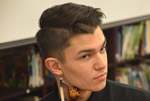 Daniel Masbad, 2015 high school graduate (home-schooled) and concertmaster of the Flagler Youth Orchestra: I read Chapter Nine of “Watchman” before Eight, fifteen pages felt like too much at the time, so I skipped ahead. I reckon now that I might make a habit of it. Not really relevant, but I also rewrote this commentary a good five times because I couldn’t rid myself of the particularly grumpy tone I picked up somewhere along the way, say Chapter Two (I still don’t think I have, but I used up my Resolve). Nine was actually quite a lovely little chapter, some history of and reflections on Atticus. After reading Eight, it’s obvious that the experience would have had an altogether different color (no, not black).
Daniel Masbad, 2015 high school graduate (home-schooled) and concertmaster of the Flagler Youth Orchestra: I read Chapter Nine of “Watchman” before Eight, fifteen pages felt like too much at the time, so I skipped ahead. I reckon now that I might make a habit of it. Not really relevant, but I also rewrote this commentary a good five times because I couldn’t rid myself of the particularly grumpy tone I picked up somewhere along the way, say Chapter Two (I still don’t think I have, but I used up my Resolve). Nine was actually quite a lovely little chapter, some history of and reflections on Atticus. After reading Eight, it’s obvious that the experience would have had an altogether different color (no, not black).
My head is perpetually in the clouds and I very often forget about common human stupidity. A side effect of this is that the mental space I occupy is thoroughly, though accidentally, po…pomo: post-racial, post-sexual (?), post-genderial, post-normative, post-stupid. By no means do I consider myself an example of enlightenment or think that I am not possessed of any degree of common idiocy, I just often forget about the lines we like so very much to draw, our distinctions and categorizations, and I give not even the slightest hint of a fuck about the affairs of other people if they don’t involve me or people I care about (about whom I care). Thus, situations such as that described in Eight are remote and extraordinary to me. Mr. O’Hanlon’s blabbering struck me first as exaggerated, ridiculous writing on Ms. Lee’s-Mr. or Mrs. Ghostwriter’s part (let’s not kid ourselves). It then occurred to me that, historically, it probably wasn’t far off, and it might even have been tame.
A hefty portion of young people my age and below say nigger/nigga/negro/niqqa on the daily. I say it. I’ve probably said it five times today. Depending on who you’re talking to, it can be quite a meaningless word; whities can say it, chinkadings, Jewsers and Jewesses, Kathlicks, Kurds, mutts (my category). Nobody cares. As a matter of fact, who really cares about any words? We can say what we like, and everyone will understand what we mean, if we’re in the proper company. The distinctions drawn above don’t matter to me and they don’t matter to a lot of people. A good question is, are we to forget the past, forget our traditions, forsake our cultures? Are we to forget all those lovely, warm things that make different groups of people different? The answer is yes, and it has something to do with the having and eating of pie. If you don’t like racism, then you will need to accept homogeneity. If you don’t like crime, then you need to accept gentrification. But anyways, surprise, surprise: There’s racism in Go Set a Watchman.
 Bill McGuire, Palm Coast City Councilman and management consultant: In this chapter we find Jean Louise reflecting upon her upbringing in the small Alabama town where she was born and raised. Her thoughts dwell upon her father Atticus and delineate his many virtues as a father. We are shown Atticus as a father deeply committed to his children and to their upbringing, showing his commitment as a man who loves his children and strives to give them the best of the world they live in. So here is our moral dilemma-is Atticus a saint or a demon and, what about his brother, Dr. John?
Bill McGuire, Palm Coast City Councilman and management consultant: In this chapter we find Jean Louise reflecting upon her upbringing in the small Alabama town where she was born and raised. Her thoughts dwell upon her father Atticus and delineate his many virtues as a father. We are shown Atticus as a father deeply committed to his children and to their upbringing, showing his commitment as a man who loves his children and strives to give them the best of the world they live in. So here is our moral dilemma-is Atticus a saint or a demon and, what about his brother, Dr. John?
I read this chapter 3 times in order to see if I was missing a theme of some kind. I find the idea of a young girl who is devoted to her father and family, and said family being high-minded and high principled, growing up in a town steeped with racial prejudice, but yet grows up to be a woman without guile or prejudice of any kind, to be lacking in credibility. The author would have us believe that, although her father and aunt were strong segregationists who had a strong following in the town, yet Jean Louise was completely insulated from this and was able to grow up in a small town in Dixie without a hint of the societal changes and mores going on around her. I say, “baloney”
The rest of this chapter portrays Jean Louise as attempting to come to grips with her family’s racial prejudices. Where can this book go from here? Will Jean Louise find that her family is correct in their philosophy? Will Jean Louise decide that her family’s prejudicial philosophy will cause her to leave her family (and her boyfriend), never to return? Pursuing these alternatives might create some interesting points in the balance of this book. I certainly hope so.
 Brian McMillan, columnist and executive editor of the Palm Coast Observer:This chapter, like the previous one, is a refreshing return to the Atticus we know from “Mockingbird.” Unlike the previous tone of shame in eight, the tone in chapter nine is nostalgia and almost elegy at the loss of the perfect man: “Atticus Finch’s secret of living was so simple it was deeply complex: where most men had codes and tried to live up to them, Atticus lived his to the letter with no fuss, no fanfare, and no soul-searching.”
Brian McMillan, columnist and executive editor of the Palm Coast Observer:This chapter, like the previous one, is a refreshing return to the Atticus we know from “Mockingbird.” Unlike the previous tone of shame in eight, the tone in chapter nine is nostalgia and almost elegy at the loss of the perfect man: “Atticus Finch’s secret of living was so simple it was deeply complex: where most men had codes and tried to live up to them, Atticus lived his to the letter with no fuss, no fanfare, and no soul-searching.”
On Atticus as a father: “He was never too tired to play Keep-Away; he was never too busy to invent marvelous stories; he was never too absorbed in his own problems to listen earnestly to a tale of woe; every night he read aloud to them until his voice cracked.”
Jean Louise realizes she worshiped Atticus, that he was her moral compass. But now that she is an adult, she has superseded him in righteousness because she recognizes that racism is an evil thing. How has he missed that? She is struggling here, and I have to say that it makes for good reading.
We can ask whether Harper Lee intended the “Mockingbird” Atticus to be the same man as the “Watchman” Atticus. Did he always have that seed of racism in him despite his words and actions in “Mockingbird”? It makes him a fascinating character to study if that is the case, and it makes me wonder if I ever really know anyone. I can’t, really, unless I literally walk around in his shoes and get inside his brain. Unfortunately or fortunately, the only way I can do that is through fiction.
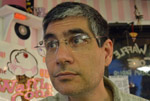 Pierre Tristam, editor of FlaglerLive: Harper Lee back-fills. Chapter 9 is the biography of what had been before this day of Jean Louise’s return from new York. We learn of Jem’s heart-attack death at 22, similar to his mother’s, and of Jean Louise taking her gender as a “cruel joke,” since it had never occurred to her that she’d been a girl. That may explain a few things. The chapter also tells us that it wasn’t her choice, but Atticus’s gentle boot, that sent her to New York. That’s significant: we’ve made too much of Scout’s alleged independence, when all it might have been was, as she herself makes us realize, nothing more than her acting as boys would, before she realized she was a girl. The send-off to New York is a bit inconsistent with Atticus’s character as we’re coming to know it here. He doesn’t sound like a man who has patience for the North. Why would he send his daughter there? And to New York, of all places. But until now, it’s still unclear what, exactly, Scout is doing in New York. Unless I missed it earlier, she hasn’t told us how she’s making her living, raising the possibility that she is either on Atticus’s dole or someone else’s–and again clouding the old legend of Scout as the strong, independent woman we’ve projected her to be. I imagine this chapter is the author’s breather after the Atticus-as-KKK leader revelations of the previous one. It’s inoffensive, a bit smug (“She was extravagant with her pity, and complacent in her snug world”) but potentially useful for Mockingbird genealogists.
Pierre Tristam, editor of FlaglerLive: Harper Lee back-fills. Chapter 9 is the biography of what had been before this day of Jean Louise’s return from new York. We learn of Jem’s heart-attack death at 22, similar to his mother’s, and of Jean Louise taking her gender as a “cruel joke,” since it had never occurred to her that she’d been a girl. That may explain a few things. The chapter also tells us that it wasn’t her choice, but Atticus’s gentle boot, that sent her to New York. That’s significant: we’ve made too much of Scout’s alleged independence, when all it might have been was, as she herself makes us realize, nothing more than her acting as boys would, before she realized she was a girl. The send-off to New York is a bit inconsistent with Atticus’s character as we’re coming to know it here. He doesn’t sound like a man who has patience for the North. Why would he send his daughter there? And to New York, of all places. But until now, it’s still unclear what, exactly, Scout is doing in New York. Unless I missed it earlier, she hasn’t told us how she’s making her living, raising the possibility that she is either on Atticus’s dole or someone else’s–and again clouding the old legend of Scout as the strong, independent woman we’ve projected her to be. I imagine this chapter is the author’s breather after the Atticus-as-KKK leader revelations of the previous one. It’s inoffensive, a bit smug (“She was extravagant with her pity, and complacent in her snug world”) but potentially useful for Mockingbird genealogists.





























Leave a Reply